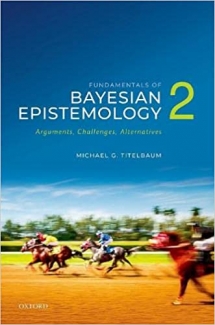جلد سخت سیاه و سفید
Product details
- Publisher : Oxford University Press (May 3, 2022)
- Language : English
- Hardcover : 384 pages
- ISBN-10 : 0192848852
- ISBN-13 : 978-0192848857
کتاب Socialism Goes Global: The Soviet Union and Eastern Europe in the Age of Decolonisation
This collectively written monograph is the first work to provide a broad history of the relationship between Eastern Europe and the decolonising world. It ranges from the late nineteenth to the late twentieth century, but at its core is the dynamic of the post-1945 period, when socialism's importance as a globalising force accelerated and drew together what contemporaries called the 'Second' and 'Third Worlds'. At the centre of this history is the encounter between the Soviet Union and Eastern Europe on one hand, and a wider world casting off European empires or struggling against western imperialism on the other. The origins of these connections are traced back to new forms of internationalism enabled by the Russian Revolution; the interplay between the first 'decolonisation' of the twentieth century in Eastern Europe and rising anti-colonial movements; and the global rise of fascism, which created new connections between East and South. The heart of the study, however, lies in
the Cold War, when these contacts and relationships dramatically intensified. A common embrace of socialist modernisation and anti-imperial culture opened up possibilities for a new and meaningful exchange between the peripheries of Eastern Europe, Latin America, Africa, and Asia. Such linkages are examined across many different fields - from health to archaeology, economic development to the arts - and through many people - from students to experts to labour migrants - who all helped to shape a different form and meaning of globalisation.
منابع کتاب کتاب Socialism Goes Global: The Soviet Union and Eastern Europe in the Age of Decolonisation
این تک نگاری که به صورت جمعی نوشته شده است، اولین اثری است که تاریخچه گسترده ای از رابطه بین اروپای شرقی و جهان استعمار زدایی ارائه می دهد. دامنه آن از اواخر قرن نوزدهم تا اواخر قرن بیستم است، اما هسته اصلی آن پویایی دوره پس از 1945 است، زمانی که اهمیت سوسیالیسم به عنوان یک نیروی جهانی شتاب گرفت و آنچه را که معاصران «جهان دوم» و «جهان سوم» می نامیدند، گرد هم آورد. در مرکز این تاریخ، رویارویی اتحاد جماهیر شوروی و اروپای شرقی از یک سو، و جهانی گستردهتر که امپراتوریهای اروپایی را دور میاندازد یا از سوی دیگر با امپریالیسم غربی مبارزه میکند، قرار دارد. منشأ این ارتباطات به اشکال جدید انترناسیونالیسم برمیگردد که توسط انقلاب روسیه امکانپذیر شد. تعامل بین اولین "استعمارزدایی" قرن بیستم در اروپای شرقی و افزایش جنبش های ضد استعماری. و ظهور جهانی فاشیسم، که ارتباطات جدیدی بین شرق و جنوب ایجاد کرد. با این حال، قلب مطالعه در آن نهفته است
جنگ سرد، زمانی که این تماس ها و روابط به طور چشمگیری تشدید شد. آغوش مشترک مدرنیزاسیون سوسیالیستی و فرهنگ ضد امپریالیستی، فرصتهایی را برای مبادله جدید و معنیدار بین مناطق پیرامونی اروپای شرقی، آمریکای لاتین، آفریقا و آسیا باز کرد. چنین پیوندهایی در بسیاری از زمینههای مختلف - از سلامت گرفته تا باستانشناسی، توسعه اقتصادی تا هنر - و از طریق افراد زیادی - از دانشآموزان گرفته تا کارشناسان و مهاجران کارگری - که همگی به شکلگیری شکل و معنای متفاوتی از جهانیسازی کمک کردند، مورد بررسی قرار میگیرند.
































ارسال نظر درباره کتاب Socialism Goes Global: The Soviet Union and Eastern Europe in the Age of Decolonisation